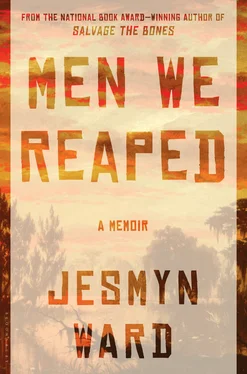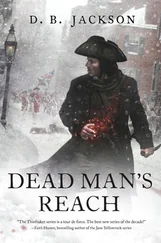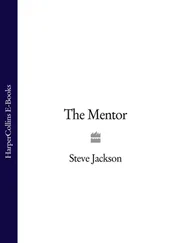I was sixteen when I had my first drink. I spent the night with my best friend from my high school. She was a tall, generous girl who was unfailingly honest with me, who pulled me through some of my darkest bouts of teenage angst and adult depression, those times when my vision narrowed to a pinpoint and the world as I knew it beat me into hopelessness. We sat on the floor in her family’s living room and took shots of cooking sherry. When the buzz hit me, I was euphoric. All the self-loathing, the weight of who I was and where I was in the world, fell away. I lay with her on the sofa, watching television, and said, “Mariah, I hope this feeling never ends.”
“With as much as you drank, I don’t think it’s going to end anytime soon,” she said.
We ran upstairs when her parents returned home. My euphoria turned to nausea, and I vomited all over her shag carpet. She cleaned up my vomit and helped me to the bathroom, where I spent the night with my face on her cool toilet seat, blacked out. The next day she dropped me off at my father’s house, and I stood out in the road with Joshua.
I was cold. I wore one of my brother’s jackets with my arms pulled into the sleeves to keep my hands warm, and I hugged myself. The skin at the sides of my mouth was dry, but my forehead and chin were dotted with acne. Joshua, who was fourteen, didn’t have any acne. He wore a puffy Oakland Raiders coat, and he laughed as I told him about my night.
“And then I woke up on the toilet. I feel like shit.”
Joshua smiled. He was winter pale, which meant he was a gold color, and his hair seemed darker than it would, sun-lightened, in the summer. He shoved his hands in his pockets.
“You smoked weed yet?”
“Naw.” I wouldn’t until I was eighteen.
“It’s better. You don’t have a hangover.”
A woman was walking toward us. She wore a white long-sleeved long john shirt with black basketball shorts, and her calves were skinny and ashy. Her processed hair stuck up in sheaves over her head. I wondered why she wasn’t cold.
“I liked it at the beginning,” I said. “It was just when I wanted to throw up that things got bad. Ugh,” I said, tasting the puke in my mouth. I’d vomited so violently it’d poured out of my nose.
The woman stopped and spoke to my brother.
“What’s up?” She said this genially, with a grin. I thought maybe she thought he was handsome, as I did, even though he was at least ten years younger than her.
“Nothing,” he said. “Just chilling.”
They spoke as if they’d had this conversation before. I hugged myself, feeling a residual wave of nausea. My brother shook hands with the woman, and then she ambled away from us, one of her hands swinging loose, the hand she’d shook with my brother balled into a fist and held tightly to her chest, her hips swaying.
“She gotta be cold,” I said.
Joshua looked down at me, smiled a small smile, so small I couldn’t see his teeth. He let it go and shook his head.
“I’m selling crack,” he said.
He looked anxious. He thought I would judge him, which I did, but not in the way he thought I would. The woman disappeared around the bend of the road, clutching what he’d sold her.
“How?” I asked. “Why? When did you start?” I shivered, hugged myself tighter. The fear that I’d felt for him grew larger, so great and immediate my back rounded in my brother’s coat, my whole body tensing for a bone-breaking blow.
“I need money,” he said. I didn’t dispute him. Our father was struggling to make the mortgage payments on the house, working menial jobs that didn’t pay well, first as a casino worker, then back to his adolescence as a gas station attendant. There was little extra money for food and clothes. Joshua was still too young to have a legitimate job. He may have been asking Joshua for money to help with bills; once, when my father was living in New Orleans, he’d asked me to help him pay his rent. I shouldn’t have asked my brother why. My brother had learned: to be a man meant to provide.
“My friends out here,” he said, “they do it. So one day … It’s not hard — well, sometimes.” He looked off in the distance after the woman when he said it.
“You ain’t scared?” I asked him. He didn’t answer.
I looked at the fine down over his top lip and his dark brown eyes and thought for the first time: He knows something I don’t . Perhaps he’d looked into his own mirror and seen my father when I had only seen my father’s absence. Perhaps my father taught my brother what it meant to be a Black man in the South too well: unsteady work, one dead-end job after another, institutions that systematically undervalue him as a worker, a citizen, a human being. My mother had found a way to create opportunity for me, to give me the kinds of educational and social advantages that both Joshua and I might have had access to if we weren’t marked by poverty or race, so I was bent on college. Joshua had lesser models and lesser choices, and like many young men his age, he felt that school was not feasible for him. He never envisioned college for himself, a path through education to an upwardly mobile future, the American dream shining like some wishing star in the distance. For me there were hopes: a house of brick and wood, a dream job doing something demanding and worthwhile, a new, gleaming car that never ran out of gas. Joshua would hustle. He would do what he had to do to survive while I dreamed a future. My brother was already adept with facts. His world, his life: here and now. Josh is older than me , I thought. More mature . It was as if he’d drunk an entire case of Tabasco.
Joshua Adam Dedeaux. Born: October 27, 1980. Died: October 2, 2000
This is where the past and the future meet. This is after the pit bull attack, after my father left, and after my mother’s heart broke. This is after the bullies in the hallway, after the nigger jokes, after my brother told me what he’d done as we stood out on the street. This is after my father had six more children with four different women, which meant he had ten children total. This is after my mother stopped working for one White family who lived in a mansion on the beach and began working for another White family who lived in a large house on the bayou. This is after I’d earned two degrees, a crippling case of homesickness, and a lukewarm boyfriend at Stanford. This is before Ronald, before C. J. This is before Demond, before Rog. This is where my two stories come together. This is the summer of the year 2000. This is the last summer that I will spend with my brother. This is the heart. This is. Every day, this is.
When I finished my master’s coursework at Stanford in April 2000, I packed my things and shipped the detritus of my life via UPS to Mississippi. I was moving home. I wanted to live in southern Mississippi or somewhere near Mississippi in the South for a few years because I was tired of being away: I was tired of being small in the big world. I was tired of being perpetually lonely. During my senior year at Stanford, I’d sat in my college dorm room, a single with shag carpeting and a sink in a closet, and stared out into the courtyard at the moon, which shone brightly through the weave of oak trees. I ached so badly for my family and DeLisle that I’d cried. How do I get back? I’d worked hard in high school, spending weekend nights during my junior and senior years studying for standardized tests and navigating the unfamiliar lingo of college applications alone. Going to an elite college far from home hadn’t molded me into an adult, made me confident and self-assured; instead, it had confused me, made me timid and unsure of myself. I yearned for the familiar. I wanted to live at home as an adult, independent but not far from the cradle of my family, my brother and sisters, my friends. My boyfriend at the time told me that he’d decided to take a job in New York after graduation, and even though we were five years into a relationship, I felt presumptuous following him to that city.
Читать дальше












